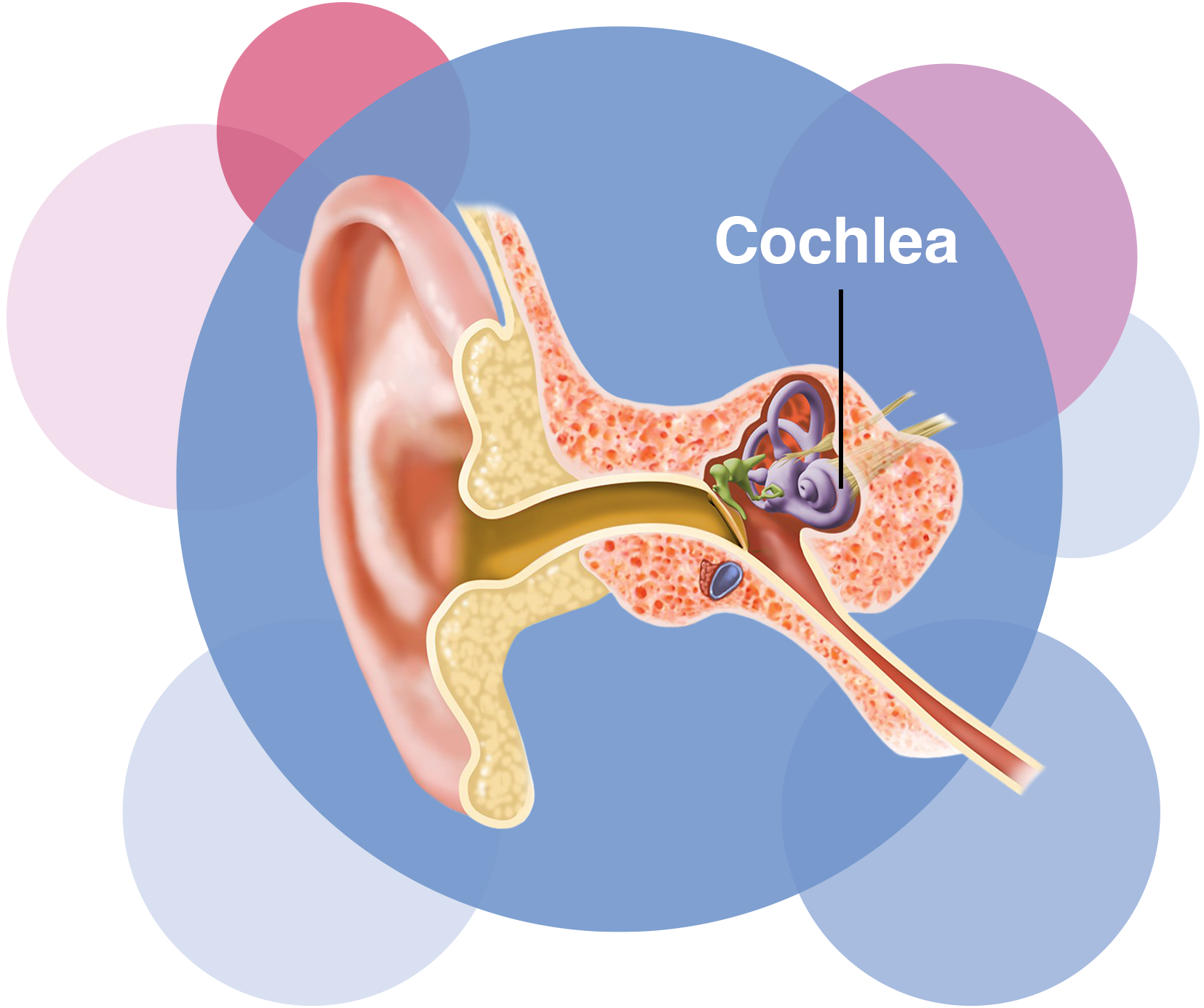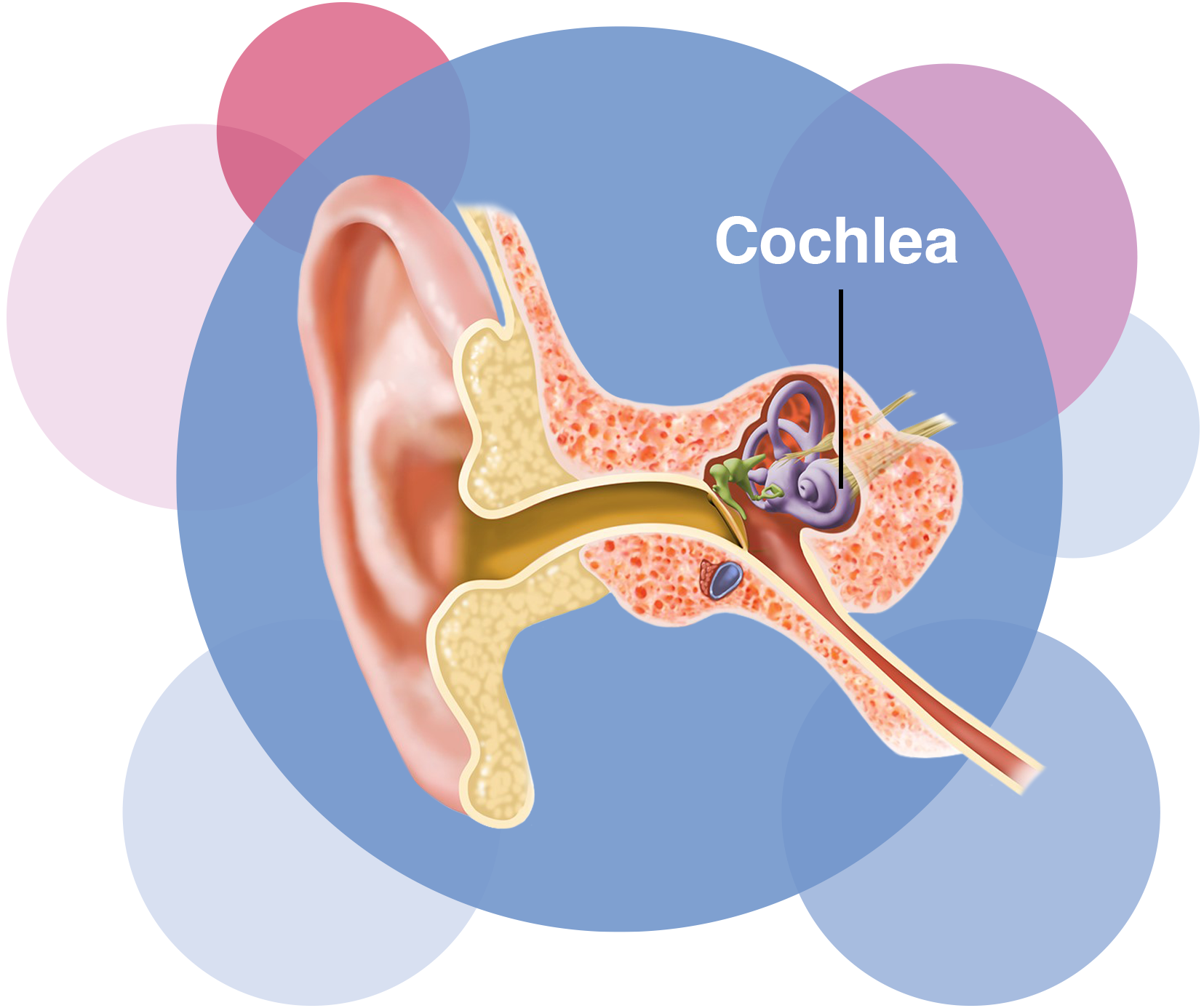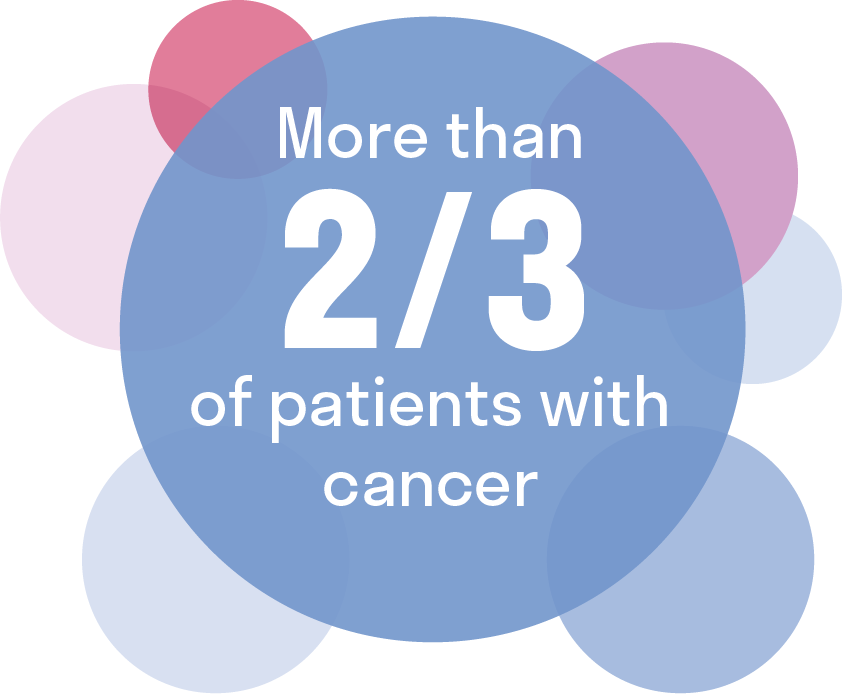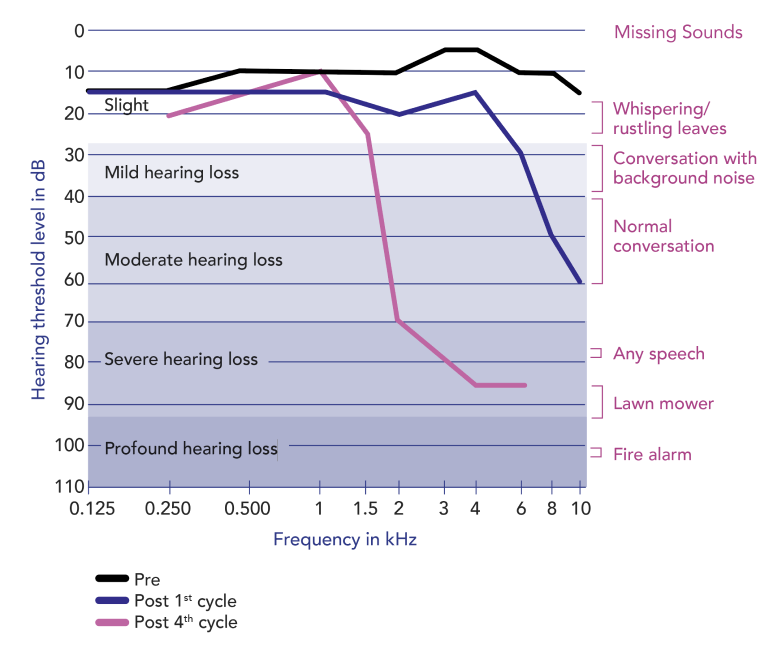
Not actual patient.
What is cisplatin-induced hearing loss?


Not actual patient.
Cisplatin build-up in the inner ear may cause irreversible hearing loss

A fetus can hear from around
26 weeks of pregnancy.
Cisplatin is a powerful medicine used to treat cancer. Over time, cisplatin builds up in the cochlea (cok-lee-ah), the spiral-shaped part of the inner ear.
- The cochlea of a fetus is fully developed by the 23rd week in utero
- This includes the thousands of tiny hair cells in the cochlea that work to make sound louder
- Cisplatin damages the hair cells in the cochlea
- Higher doses of cisplatin may cause more damage
- Once destroyed, the hair cells cannot grow back
- This damage may cause permanent hearing loss, usually in both ears

A fetus can hear from around
26 weeks of pregnancy.
Cancer survivors may be left with lifelong hearing loss that has been shown to affect their education, social development, and future employment.
People who get platinum-based chemotherapy, such as
cisplatin, are at risk for permanent hearing loss

*Based on Chang grading scale. Prevalence may differ based on alternate grading scales.


Signs and symptoms of cisplatin-induced hearing loss include:
- Inability to hear higher-pitched sounds (consonant sounds like the letters Z, T, B, or H in speech, birds singing, or music)
- Affects both ears
- Worsens over time
- Permanent
- Higher doses of cisplatin can result in being unable to hear lower-pitched sounds (some vowel sounds like the letters A, E, I, O or U; a drum, thunder)
- Ringing in the ears (tinnitus) and dizziness (vertigo)
- More hearing loss over time as cisplatin stays in the ear even after chemotherapy is over
A lifetime of hearing loss
can start with the first cisplatin cycle
A lifetime of hearing loss
can start with the first cisplatin cycle
Cochlear damage can begin early and continue even after cisplatin treatment ends. A person may begin to not hear higher-pitched sounds like music or birds. Later, they may not hear lower-pitched sounds like thunder. That’s why it’s important they get their hearing tested before, during, and after treatment.
Symptoms and responses to any treatment may vary so it’s important to talk with a healthcare provider about what is the right treatment plan and to follow the doctor’s recommendations.
Case study: Each cisplatin cycle risks more
hearing loss

Adapted from Langer T, et al.
Hearing loss may get worse even after treatment ends, as cisplatin stays in the ears for a long time
Cisplatin-induced hearing loss may cause a lifetime of disability
Most people who have non-metastatic cancer (cancer that has not spread) that are treated with cisplatin recover.
However, their hearing loss will last forever and impact almost every part of their life.
Different impacts of hearing loss

Speech and language skills

Social-emotional development

Academic performance

Career potential

Ability to live independently

Academic performance
The source for access support
Fennec HEARS™ is the single source for both financial and patient support. Call 1-833-7PEDMARK.


Get more information about PEDMARK
Find helpful tools and resources.
IMPORTANT SAFETY INFORMATION
- Do not allow your child to receive PEDMARK if they have had a severe allergic reaction to sodium thiosulfate or any of the other ingredients in PEDMARK.
- Allergic reactions can happen with PEDMARK and can be serious and life-threatening. Your healthcare provider will monitor your child for allergic reactions during the PEDMARK infusion. Your healthcare provider will stop the infusion and provide treatment if your child has an allergic reaction. If your child has an allergic reaction, your healthcare provider will give your child certain medicines before each PEDMARK infusion. Tell your healthcare provider right away if your child has any of these signs of an allergic reaction: rash, hives (raised bumps), chest tightness, wheezing, trouble breathing, swelling of the face, lips, tongue, or throat.
- Changes in salt and potassium levels in the blood are common with PEDMARK but can also be serious. Your healthcare provider will do blood tests to check your child’s sodium and potassium levels before starting and as needed during treatment with PEDMARK. Tell your healthcare provider right away if your child develops any of the following signs or symptoms: feeling tired or weak, feeling restless, muscle weakness, seizures.
- Nausea and vomiting are common with PEDMARK but can also be serious. Your healthcare provider will give your child medicines before each PEDMARK infusion to help prevent nausea and vomiting.
- The most common side effects of PEDMARK include decreased red blood cells (anemia).
- These are not all the possible side effects of PEDMARK. Call your child’s doctor for medical advice about side effects. You may report side effects to FDA at 1-800-FDA-1088. You may also report side effects to Fennec Pharmaceuticals, Inc. at 1-833-336-6321.
Please see full Prescribing Information, including Patient Information, for PEDMARK.
WHAT IS PEDMARK?
PEDMARK is a prescription medicine used to decrease the risk of hearing loss in children 1 month of age and older who are receiving cisplatin for solid tumors (cancer) that have not spread to other parts of the body.
It is not known if PEDMARK is safe and effective when given after cisplatin infusions longer than 6 hours.
It is not known if PEDMARK is safe and effective in children less than 1 month of age. PEDMARK is not recommended in children younger than 1 month of age.

